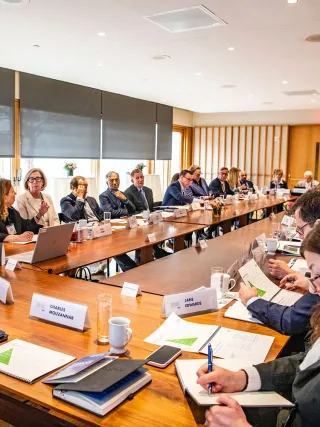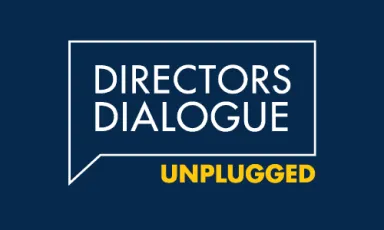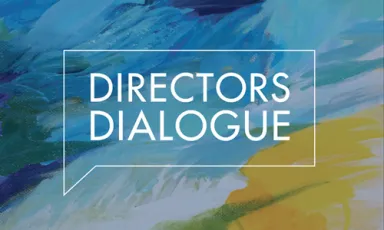Connect with Us
Thank for your interest in the Raj & Kamla Gupta Governance Institute. We look forward to connecting with you.
An immersive business education designed for the driven and determined.
Admissions experts with one goal – to help you soar like a Dragon.
Expert faculty solving tomorrow’s problems today through cutting-edge research.
Companies turn to LeBow for partnership, solutions and the next generation of leaders.

When board leaders connect, listen and learn from one another, stronger organizations and communities follow.
At the Gupta Governance Institute (GGI), we believe that conversation drives better governance. Our mission is rooted in convening meaningful dialogue, curating forward-thinking ideas and delivering actionable content that empowers board leaders to navigate today’s complex landscape.
A select group of CEOs and board directors will gather on Wednesday, Dec. 10, 2025, for the third session of the invitation-only Directors Dialogue Unplugged, a series presented by the Raj & Kamla Gupta Governance Institute (GGI), Morgan Lewis, and KPMG LLP.
Unplugged features the same confidential peer-to-peer exchange on current corporate governance topics as GGI’s annual Directors Dialogue but in an even more intimate and interactive format.

GGI keeps the dialogue flowing between and among corporate and nonprofit directors, creating a trusted space for peer-to-peer exchange on the most critical issues in governance — from accountability and transparency to ethics, risk and performance.


In April 2018, the Raj & Kamla Gupta Governance Institute was launched with a generous investment from the Gupta family foundation, Ujala.
From 1999 to 2009, Mr. Gupta was chair and chief executive officer of Rohm and Haas. Mr. Gupta held a variety of posts at the company beginning in 1971. He was elected a vice president of the company and was named director for the Pacific Region in 1993. Early in 1996, Mr. Gupta became one of six members of the Chairman’s Committee and was given oversight responsibility for the company’s Electronic Materials business group. In December 1998, Mr. Gupta was elected to the board of directors and named vice chair in January 1999. He became chair and chief executive officer on Oct. 1, 1999. Mr. Gupta assumed the additional title of president in early 2005 and held that title until May 2008.
Mr. Gupta holds a BS in Mechanical Engineering from the Indian Institute of Technology (1967), a MS degree in Operations Research from Cornell University (1969) and a MBA in Finance from Drexel University (1972). Mr. Gupta is a past chair of the American Chemistry Council and the Society of Chemical Industry, America Section. He served as Chairman of two Fortune 500 companies Aptiv PLC (formerly Delphi) and Avantor Inc. He also served on boards of HP, DuPont, Tyco and many other public and private companies.
Thank for your interest in the Raj & Kamla Gupta Governance Institute. We look forward to connecting with you.